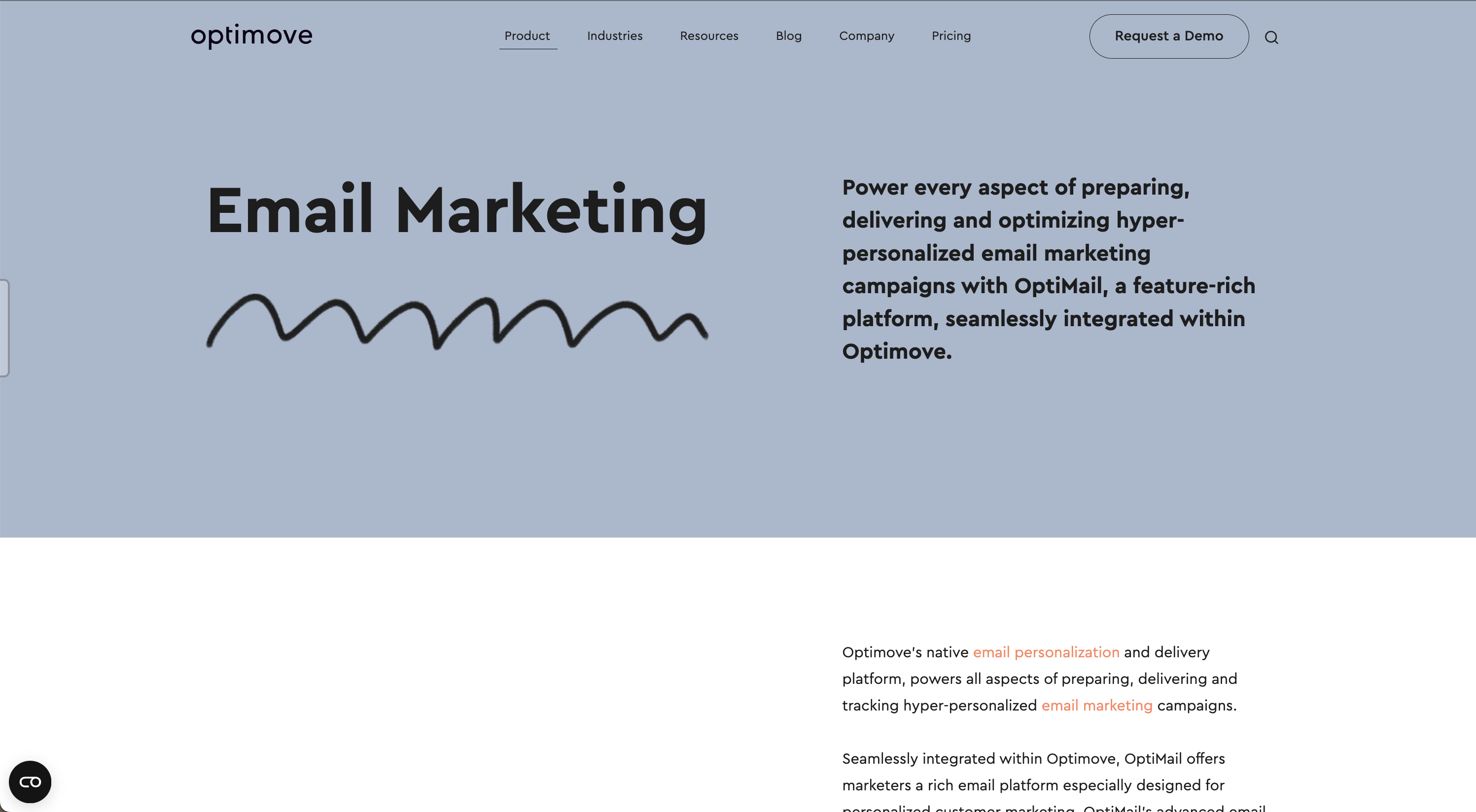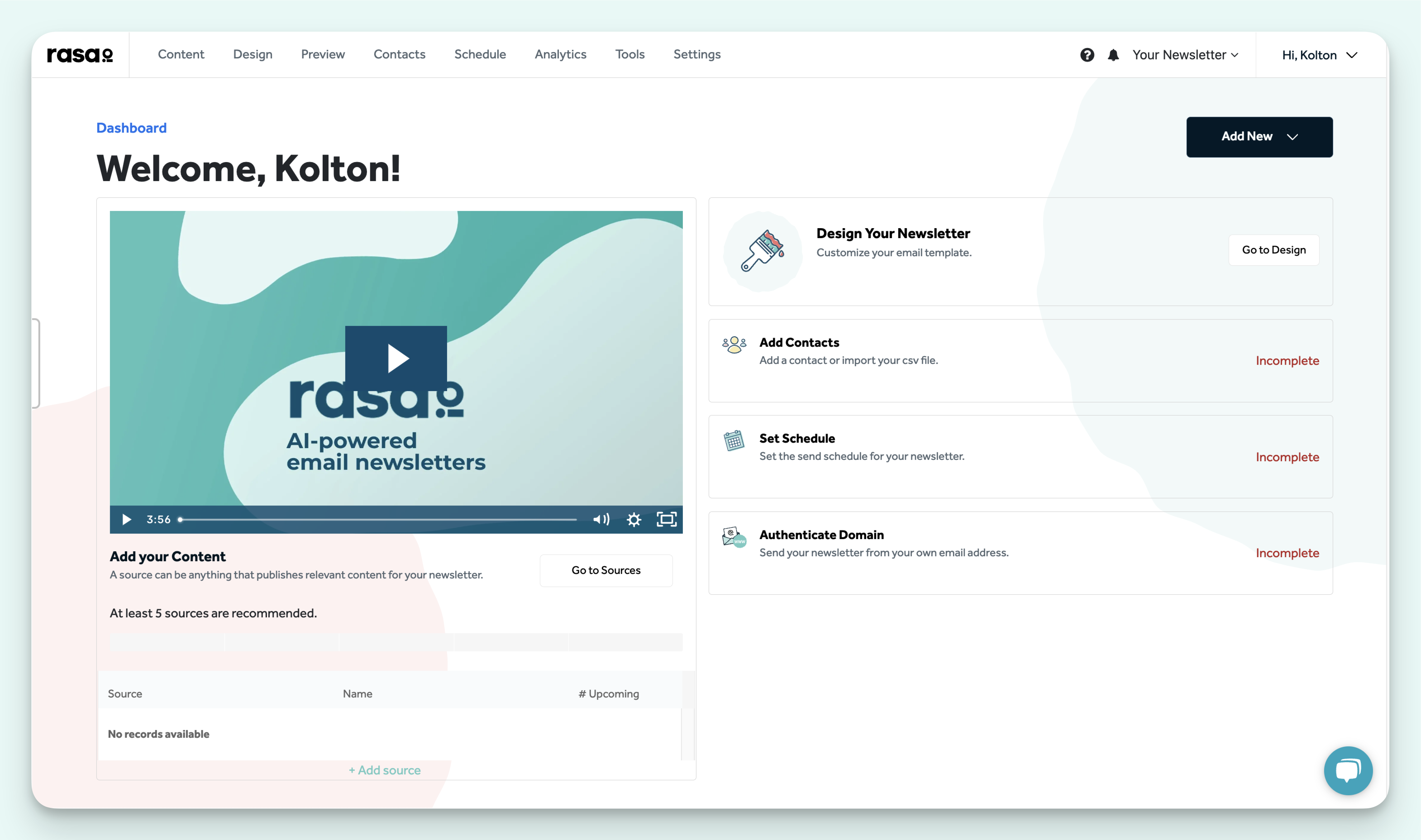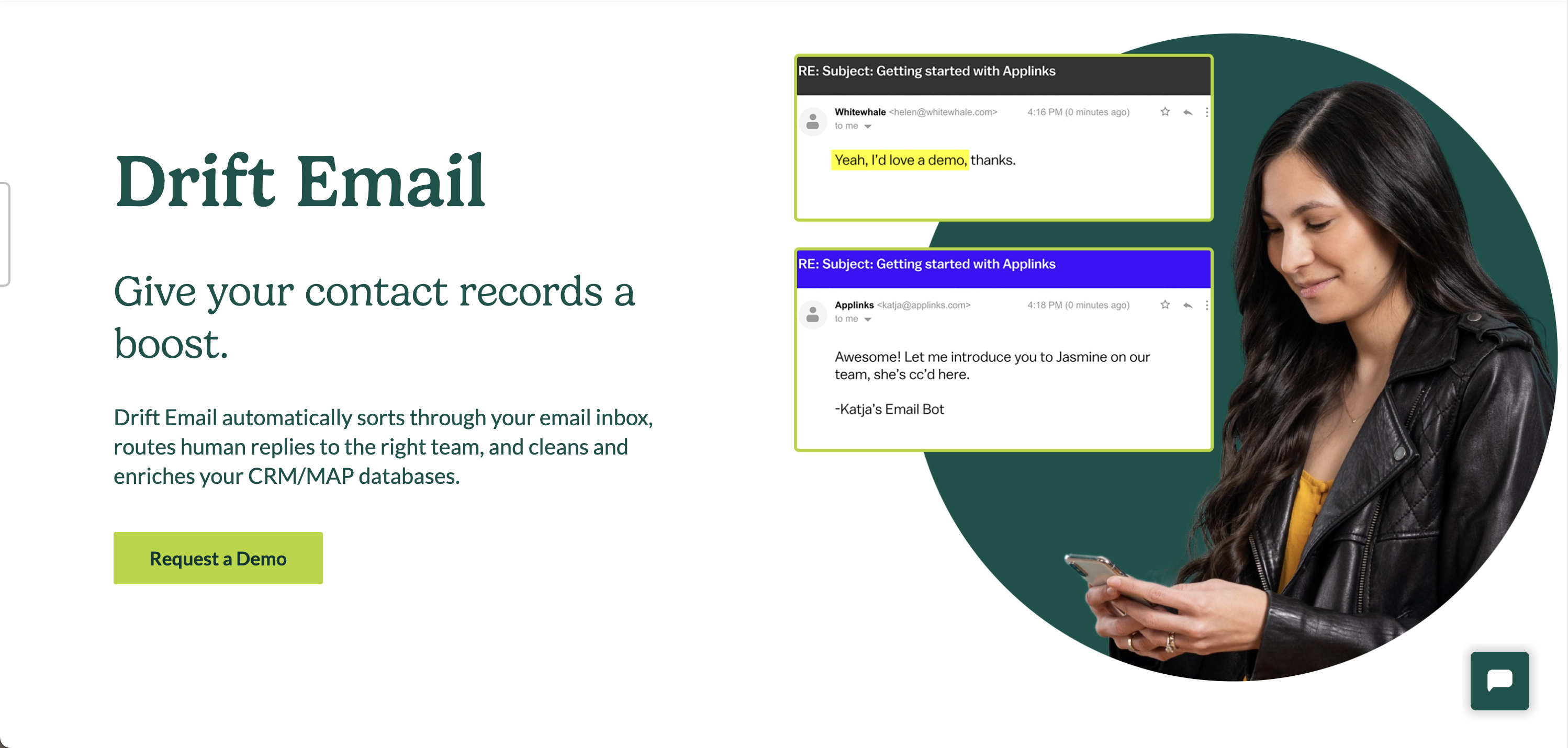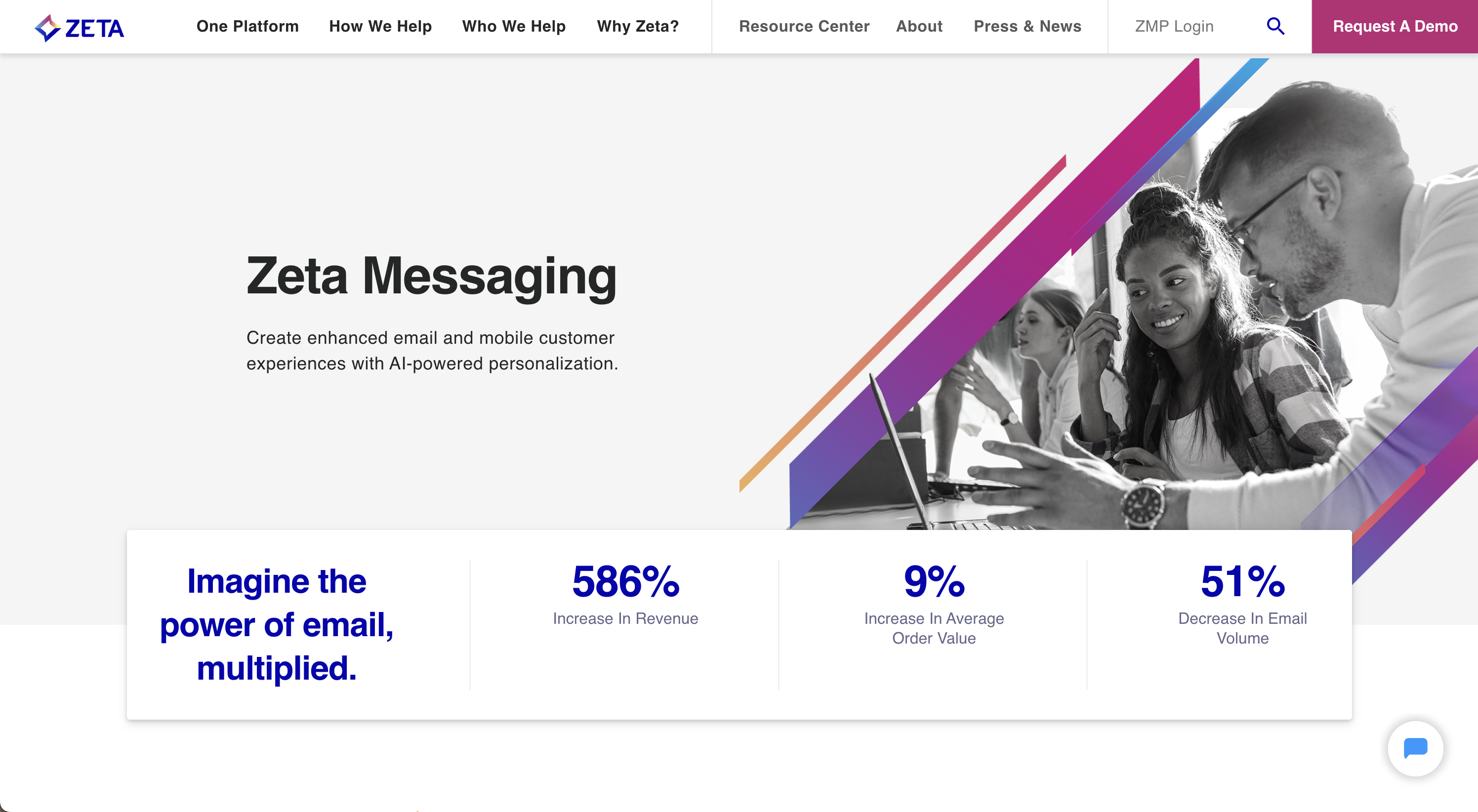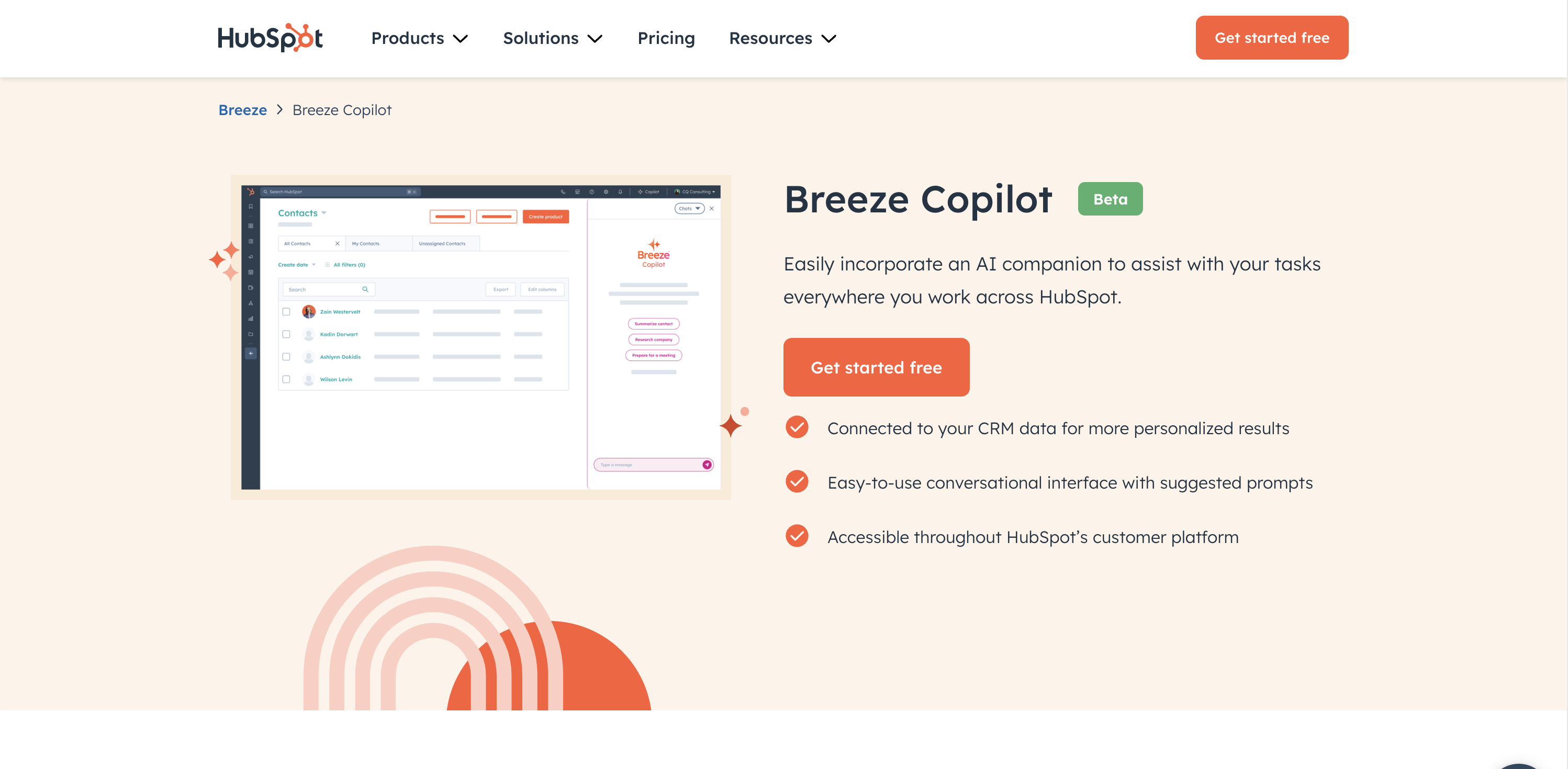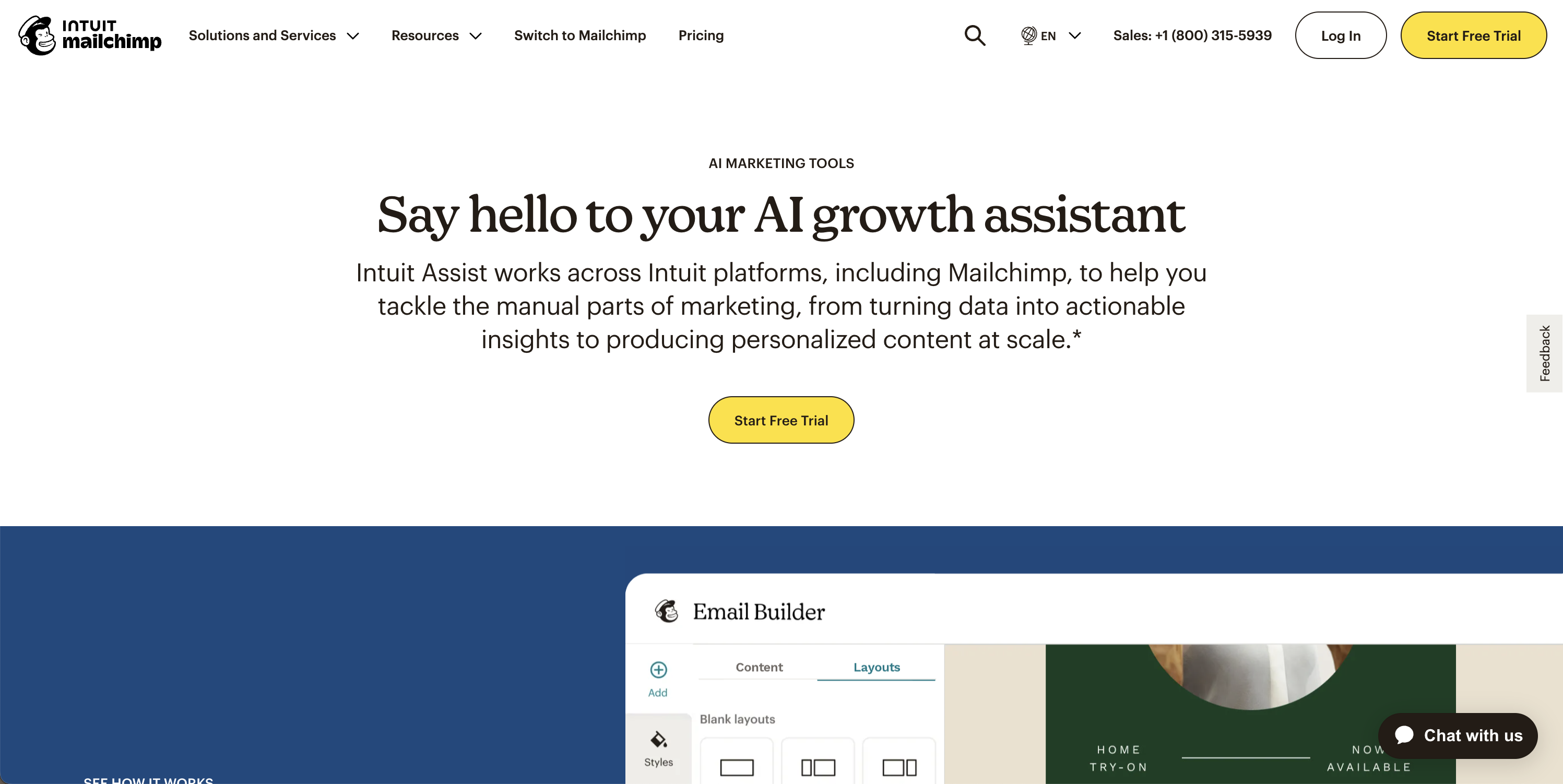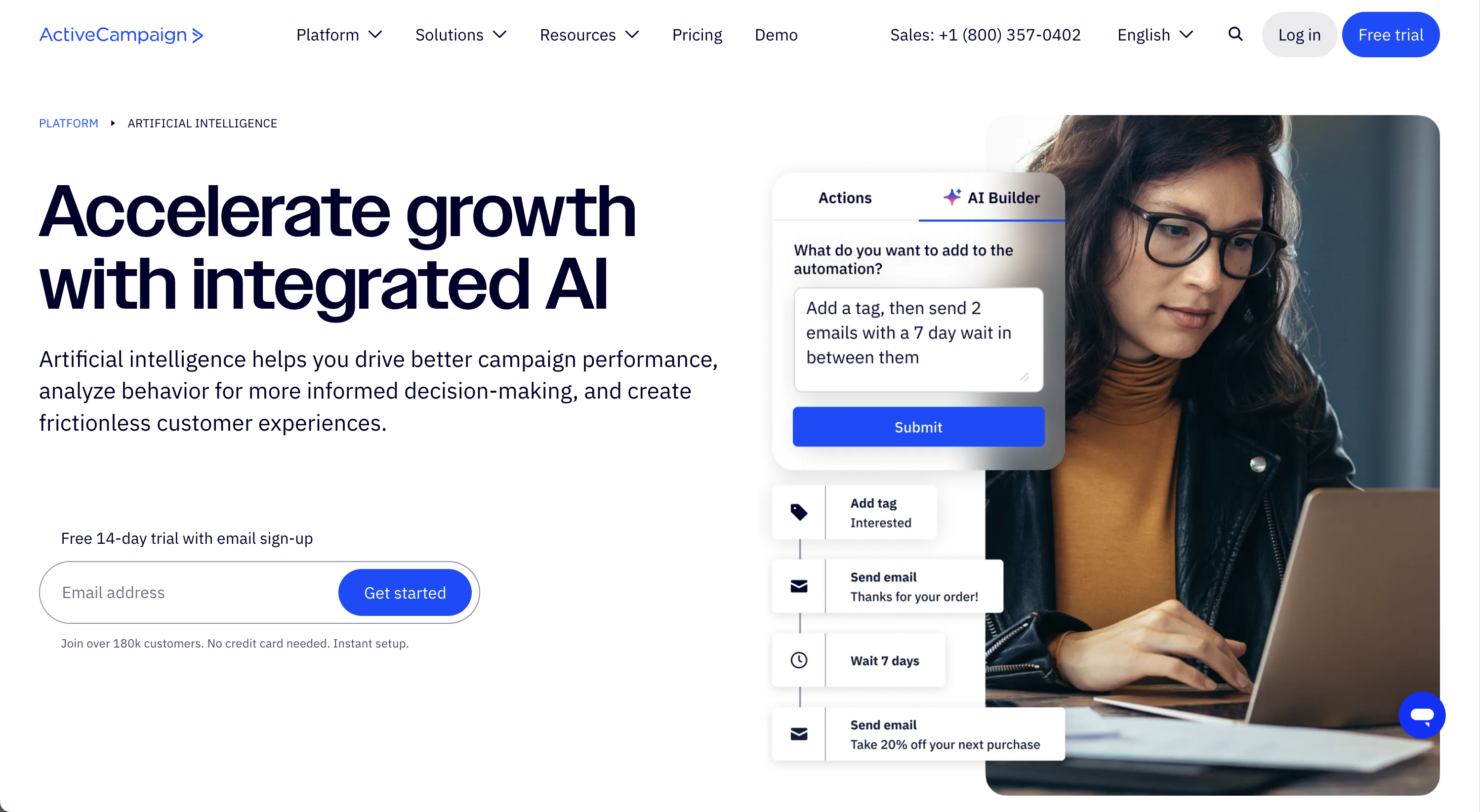At rasa.io, we love to use Artificial Intelligence (AI) in email – it’s kind of our thing – but we’re not the only ones to do it.
As you already know, Artificial Intelligence (AI) is a term that generally describes a software program or machine that mimics human comprehension and can think, learn, and perform tasks on its own. And AI can be found in tons of surprising places throughout our everyday lives.
Voice assistants, such as Siri or Alexa, use AI software to better serve our needs. When we speak to a voice assistant, its responses are chosen by Artificial Intelligence.
You can also see AI in action when you’re browsing Netflix. Ever looked at someone else’s Netflix home screen and wondered why it looked so different? When Netflix or another streaming service makes recommendations based on our preferences, you guessed it – it’s using AI.
Banking software, smart home devices, and online search engines are just some of the many tools that employ AI to get the job done.
Artificial Intelligence has not only become an integral part of our lives, but it has also become an essential tool in marketing, particularly for marketers who rely on email marketing campaigns to increase sales and grow brand awareness. AI has especially helped to improve B2B email marketing.
How your email marketing strategy can benefit from AI
There are an array of AI email tools that can help to sustain and boost a successful email marketing strategy. Using Artificial Intelligence tools to send marketing emails will result in more personalized emails as part of your digital campaigns and, in turn, increase your open, click, and conversion rates, in ways you never thought were possible.
A good AI tool can extract insights and patterns from large data sets allowing you to streamline and improve your email marketing strategy. It can also help to ensure inbox delivery more often, which gets harder every day.
But it begs to ask the question, which AI tools can really help to improve your email marketing?
As an email marketer, if you are running email campaigns as part of your overall digital marketing strategy, here is a list of the best AI marketing tools available to help you save time and attain maximum opens, clicks, replies, and conversions.
1. Optimove (formerly known as Optimail)
Optimove (formerly known as Optimail) uses AI technology to monitor individual subscriber behavior for hyper-personalization. The AI technology will automatically adjust your campaign’s personalized content and timing, driving your customers to take action, from social sharing to purchasing. This fabulous AI-powered content optimizer will increase customer engagement, drive conversions and help to ensure email deliverability.
Optimail’s email automation feature will send automated emails on your behalf will learn from subscriber responses. This AI powered tool easily integrates with existing infrastructures and can accommodate any size database.
2. rasa.io
When you use rasa.io, an AI-powered newsletter tool, you have access to the incredible power of artificial intelligence to create and send uniquely personalized newsletters to each individual subscriber. Utilizing rasa.io’s AI technology, the platform dictates a unique set of articles delivered to each subscriber based on their past customer behaviors. With rasa.io, the ability to choose your sources and make all design and distribution decisions, you are in complete control of your newsletter.
With our generative AI text feature, you can write your email copy directly on the newsletter platform. Utilizing ChatGPT and rasa.io’s AI algorithm, you can now create compelling emails all while sharing relevant information automatically.
Simplify Creating Engaging Personalized Emails!
Use smart technology to save you time curating so you can focus on the “bajillion” other things you need to do.
3. Salesloft Drift Email
Drift Email (acquired by Salesloft) is a nifty AI marketing tool that will literally sift through email replies from your subscribers and take action on those replies. For example, if a customer asks about a product or service, it will route that email to the appropriate company representative. This useful AI tool will free up resources by managing every reply that you receive through your email marketing campaign.
4. Seventh Sense
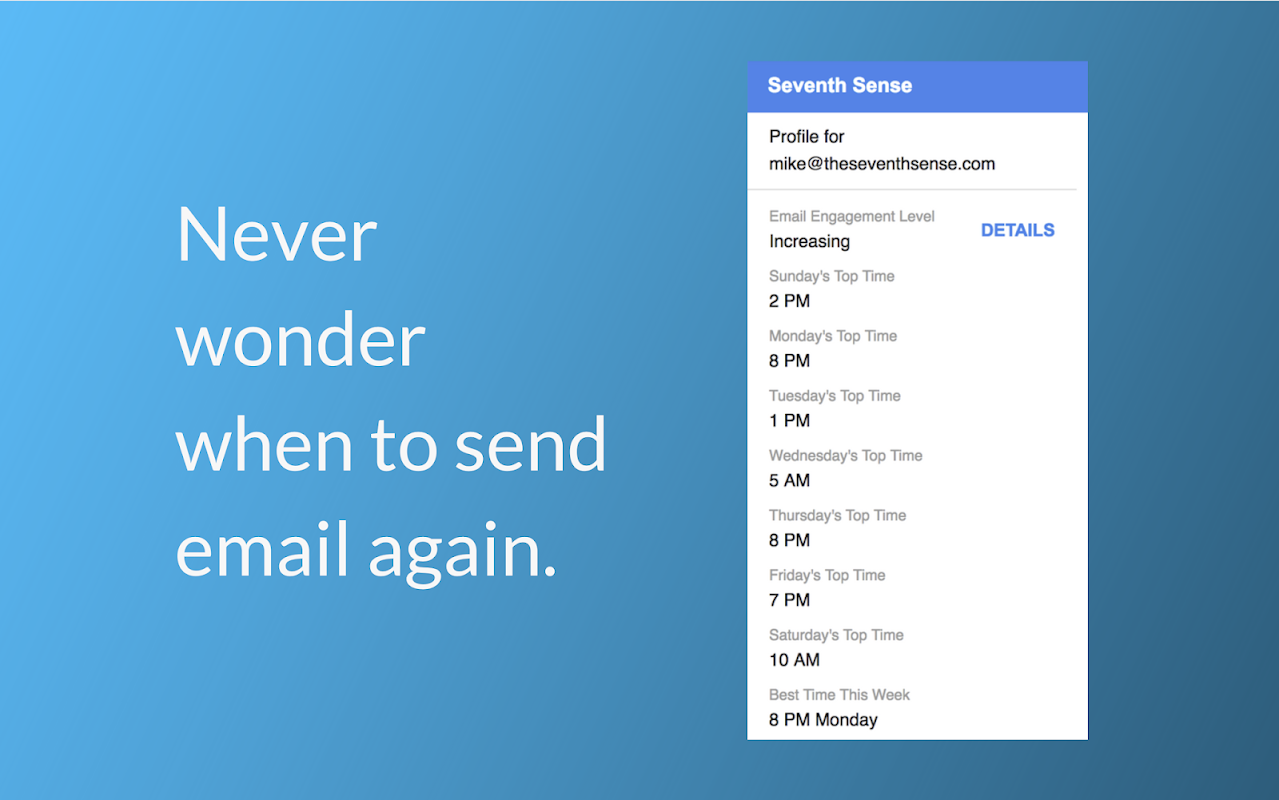
Seventh Sense is all about timing.
This email marketing tool uses artificial intelligence to choose ideal delivery times for your emails. It considers the best time to send each email and at what frequency, specific to each subscriber on your list. It is an invaluable tool for anyone who has struggled with figuring out the best times to send an email. Let’s face it, no one has ever found that sweet spot that works for every subscriber on their list. With Seventh Sense, you can.
Seventh Sense is geared toward and works best for HubSpot users.
5. Zeta Global Messaging
Zeta Email (formerly Boomtrain) is an automated AI-powered tool that creates personalized emails that increase click rates, sales, conversion rates, and user engagement. This marketing tool will analyze user behavior across various platforms to provide a clear picture of each subscriber and then use that information to boost subscriber engagement.
6. Jacquard (previously known as Phrasee)
We all know that your email’s subject line and copy can make or break an email marketing campaign. Jacquard’s Personalized Campaign is an email marketing program that uses AI to help craft better subject lines and email content to boost opens, clicks, and conversions.
Jacquard can instantly generate countless human-sounding subject line variants that are brand-compliant and tailored to each subscriber using natural language generation. Over time, the Jacquard AI algorithm learns from your audience and continually rebuilds its prediction model.
It is worth noting that in studies comparing the AI tool with human copywriters, Jacquard comes out on top 98% of the time.
7. HubSpot Breeze Copilot
8. Mailchimp AI
9. ActiveCampaign AI
10. Twilio SendGrid
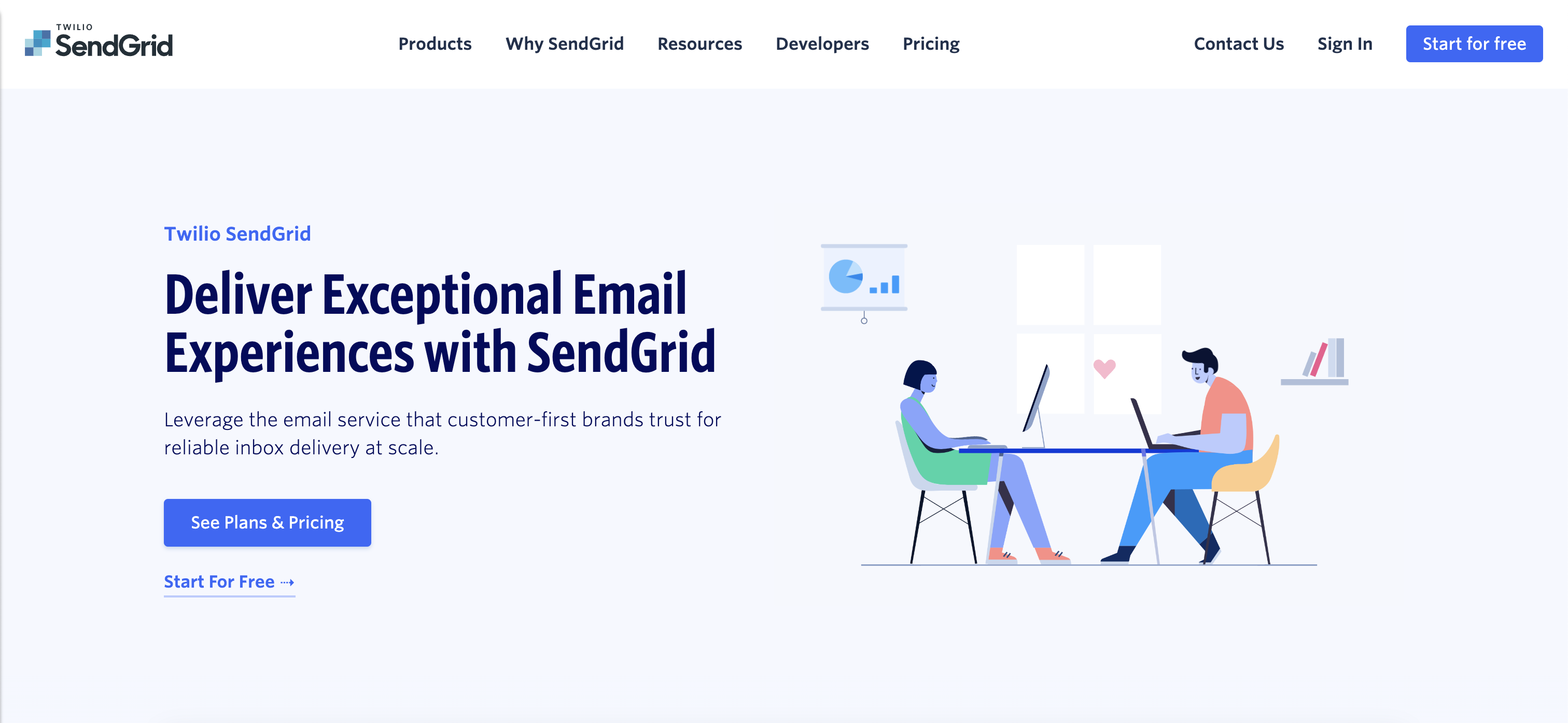
SendGrid’s email platforms use artificial intelligence (AI) to enhance customer communication. Twilio’s brain trust team and initiative aim to optimize email deliverability and engagement. With their latest AI innovation, neural protection, the tool helps customers avoid email deliverability pitfalls by using the power of neural networks. Neural Protection uses machine learning to analyze outgoing messages and optimize sending patterns for each ISP’s rules, ensuring efficient and effective operation for all senders on the SendGrid platform.
AI tools are essential to a successful email marketing strategy.
When you introduce one or more of these AI tools into your digital marketing campaign, you will surely be astounded by the results. Customer data research tasks that would previously eat up hours (or weeks) of your valuable time and resources can now be performed by Artificial Intelligence in a matter of minutes.
This newfound freedom allows you to craft beautiful, high quality, and highly personalized email marketing campaigns with remarkable precision.
Learn more about the latest in advanced email marketing tools by scheduling a private demo here.
What are the key factors to consider when choosing an AI email marketing tool for a specific business type or industry?
When choosing an AI email marketing tool for a specific business type or industry, consider factors such as scalability, customization options, industry-specific features, and ease of integration with existing systems. For instance, an organization might prioritize tools with strong segmentation and personalization capabilities like rasa.io, while a B2B company might look for advanced analytics and lead-nurturing features.
How do these AI tools integrate with existing email marketing platforms or CRMs?
Many of these AI tools typically integrate with existing email marketing platforms or CRMs through APIs or built-in connectors. For example, tools like HubSpot and Salesforce have seamless integrations that allow data to flow between systems, enabling automated workflows and unified customer insights.
What are some potential challenges or limitations of using AI in email marketing, and how can they be addressed?
Potential challenges of using AI in email marketing include data privacy concerns, the need for ongoing maintenance and training of AI models, and potential biases in AI algorithms. Address these by implementing robust data protection measures, regularly updating and training AI systems, and ensuring diverse datasets to minimize bias. For example, businesses should conduct regular audits to ensure their AI tools are functioning as intended and make adjustments as necessary to improve performance and accuracy.

